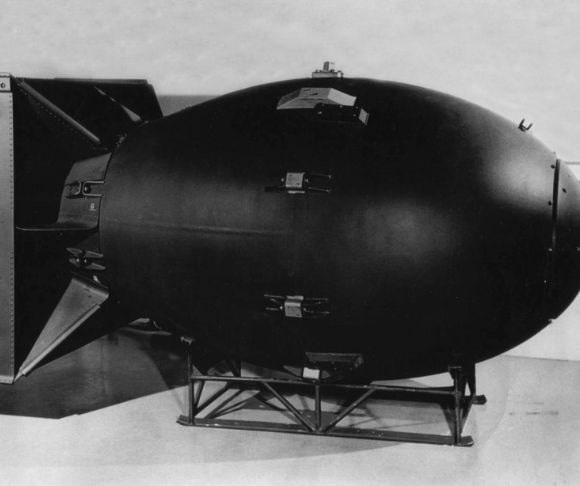Is Iran capable of building a nuclear weapon? The answer from the United Nations is yes. Iran has the nuclear material to produce “several” nuclear bombs or missile warheads, new information from the international organization confirms. Though this further confirmation is troubling, the UN’s announcement is not unexpected. Liberty Nation reported last July Iran was on the brink of achieving nuclear capability.
Speculation about how close Tehran is to the ability to build atomic weapons has been an international conundrum since then-President Trump’s cancelation of the ill-conceived nuclear weapons agreement with the Iranians blessed by his predecessor, Barack Obama, and accompanied by a billions in cash giveaway. The Associated Press provided insight into Iran’s atomic warhead program, reporting on a statement to European government officials by Rafael Mariano Grossi representing the International Atomic Energy Agency (IAEA):
“For months, nonproliferation experts have suggested Iran had enough uranium enriched up to 60% to build at least one nuclear weapon – though Tehran long has insisted its program is for peaceful purposes. While offering a caveat on Tuesday [January 24] that ‘we need to be extremely careful’ in describing Iran’s program, Grossi bluntly acknowledged just how large Tehran’s high-enriched uranium stockpile had grown.”
 Grossi was unequivocal when he told reporters Iran had accumulated enough highly processed fissionable material to produce “several nuclear weapons at this point.” The recent revelation by the IAEA comes during a time when Iran has been particularly troublesome to their neighbors and on the wider world stage. Nevertheless, many believe the Biden administration still has the resurrection of the Joint Comprehensive Plan of Action (JCPOA) as a primary foreign policy objective.
Grossi was unequivocal when he told reporters Iran had accumulated enough highly processed fissionable material to produce “several nuclear weapons at this point.” The recent revelation by the IAEA comes during a time when Iran has been particularly troublesome to their neighbors and on the wider world stage. Nevertheless, many believe the Biden administration still has the resurrection of the Joint Comprehensive Plan of Action (JCPOA) as a primary foreign policy objective.
Negotiations involving Tehran representatives and the US and European Union allies aimed at impeding Iran in its race to become a nuclear nation never made any demonstrable progress. The talks began soon after Biden took office but came to a halt in August 2022 when a negotiated agreement final draft was provided to the Iranian leadership. Meanwhile, as we learn now from the IAEA, Iranian technicians continued to refine uranium with an atomic weapon in mind throughout the talks and the sanctions. The Tehran government has dragged its feet by not approving the final draft of the new agreement text. Anyone who is surprised by the Iranian leadership’s duplicity is hopelessly naïve.
The White House’s focus on bringing back the JCPOA has many detractors concerned. Fox News reported, “Critics say the Biden administration’s statements over this month [Jan. 2023] show its unfailing allegiance to JCPOA that, according to one US think tank study, would funnel $275 billion in benefits to Tehran in its first year and $1 trillion by 2030.”

Ted Cruz (Photo by Scott Olson/Getty Images)
“Sen. Cruz believes that the Biden administration is ideologically obsessed with reentering a nuclear deal with Iran,” the report continued, citing a spokesman for the senator. Cruz reasons the Biden administration, contrary to public statements, would breathe life into the JCPOA as a priority above far more critical and pressing threats. However, there is some good news to be had in countering Iran in the Middle East.
Recent agreements and military exercises between the US and Israel are encouraging signs that the two nations have intentions to keep Iran’s nuclear ambitions in check. The 2022 joint Israeli and US pledge, referred to as the “Jerusalem Declaration” to prevent Iran from acquiring a nuclear weapon, signed in July of last year, was a useful and positive step. Additionally, the largest combined US-Israel military exercise called “Juniper Oak 2023,” involving the US Central Command and Israeli Defense Forces, concluded on January 27. The training operation involved front-line weapon systems and was an unambiguous message to Iran that the Jerusalem Declaration was backed by formidable military capability.
Despite Tehran’s misbehavior in the Middle East, whether Iran will build an atomic weapon remains a question. The UN’s confirmation of Iran’s growing enriched uranium stockpile calls for the US and Europe to be more proactive in addressing Tehran’s potential for becoming another hostile and menacing nuclear force.
The views expressed are those of the author and not of any other affiliation.




